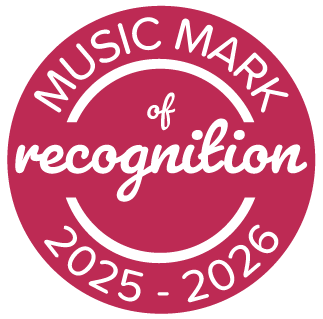Maths
Statement of Intent
Our Maths curriculum is designed to deliver an engaging and stimulating maths curriculum which is accessible to all. We meet the needs of each learner, building upon previous learning and providing appropriate challenge in order to maximise progress. We want children to know more, understand more and remember more about maths so they can become fluent in the fundamentals of mathematics, including through varied and frequent practice with increasingly complex problems over time, so that pupils develop conceptual understanding and the ability to recall and apply knowledge rapidly and accurately.
Our curriculum is sequenced so that each year group's learning builds on the learning from previous years. We use White Rose as a basis for our curriculum but adapt this to meet the needs of our learners. We are also working with the Boolean Maths Hub to develop a mastery approach to teaching mathematics. This approach ensures that teaching and learning is consistent and supports all pupils with their understanding and retention. Pupils are required to explore maths in depth, using mathematical vocabulary to reason and explain their workings. A wide range of mathematical resources are used and pupils are taught to show their workings in a concrete, pictorial and abstract form wherever suitable. They are taught to explain their choice of methods and develop their mathematical reasoning skills. We encourage resilience and acceptance that struggle is often a necessary step in learning. Our curriculum allows children to better make sense of the world around them relating the pattern between mathematics and everyday life.
We understand that Mathematics is an interconnected subject in which pupils need to be able to move fluently between representations of mathematical ideas. Our curriculum is organised into distinct strands, but it is our intention that pupils should make rich connections across mathematical ideas to develop fluency, mathematical reasoning and competence in solving increasingly sophisticated problems. They should also apply their mathematical knowledge to science and other subjects.
The expectation is that the majority of pupils will move through the programmes of study at broadly the same pace. However, decisions about when to progress should always be based on the security of pupils’ understanding and their readiness to progress to the next stage. Pupils who grasp concepts rapidly should be challenged through being offered rich and sophisticated problems before any acceleration through new content. Those who are not sufficiently fluent with earlier material should consolidate their understanding, including through additional practice, before moving on.
We are committed to developing the ability of each child to reason mathematically and provide opportunities for all children to communicate their reasoning, both orally and in writing. We have a strong focus on the development of the language of mathematics from early years onwards, and promote the understanding and use of precise mathematical vocabulary.
We intend for all pupils to solve problems by applying their mathematics to a variety of routine and non-routine problems with increasing sophistication, including breaking down problems into a series of simpler steps and persevering in seeking solutions.
We want to establish a positive maths mindset across the whole school, where learners have the confidence to take risks and learn from their mistakes. We want children to see themselves as successful mathematicians and understand that errors are part of the learning process. We make rich connections across other subject areas, establish meaningful links to everyday life and instil a sense of enjoyment and curiosity about the subject.
Maths by Strand
Maths by Year Group
Home Learning in Mathematics
EYFS & KS1 - Mathletics
We know that learning does not stop at the classroom door so we have invested in online programmes designed to extend children's learning at home. In EYFS and Key Stage 1 children can use Mathletics at home
Mathletics contains fun and engaging activities, suitable for all ages and abilities, which closely match the curriculum; it will help your child to consolidate their learning at home. Mathletics also adds a competitive dimension to learning, allowing students to play live mental arithmetic games against other students from around the world. It is available either through the Mathletics website (http://uk.mathletics.com/signin) or as a free downloadable app for tablets. Your child has access to Mathletics through a unique username and password, which your child should have brought home. We recommend that you spend time looking at Mathletics with your child so that you can understand how it will benefit their learning.
As a parent or carer, you can sign up to receive weekly email reports. These reports will provide you with details of your child’s progress and achievement. To register as a parent, you will need your child’s username and password:
- Visit www.mathletics.com/parent
- Complete the fields and click Submit
- Record your new username and password
To access the Parent Console:
- Visit www.mathletics.com
- Sign in using your own user details
If you experience difficulty in accessing Mathletics at home, please contact the school office. Alternatively, you can contact the Mathletics team directly on 0117 370 1990 or email customerservice@3plearning.co.uk.
KS2 - Doodle Maths
In Key Stage 2 we subscribe to Doodle Maths which is very popular with the children. In September logins are sent out so that children can access the platform from any device. If you have any questions about Doodle Maths please contact Mr Beard through the school office.
This year we are also introducing FunKey Maths in Key Stage 2 which is a card based game designed to strengthen children's knowledge of multiplication tables. We have trialled it in Year 3 and the children have really enjoyed it and we have seen an increase in their knowledge of their tables. We have negotiated a discounted price for parents to buy sets for home use and will be sending out more information about this in Term 1.
Calculation Policies
calculation policy addition.pdf
calculation policy subtraction.pdf
calculation policy multiplication.pdf
calculation policy division.pdf









